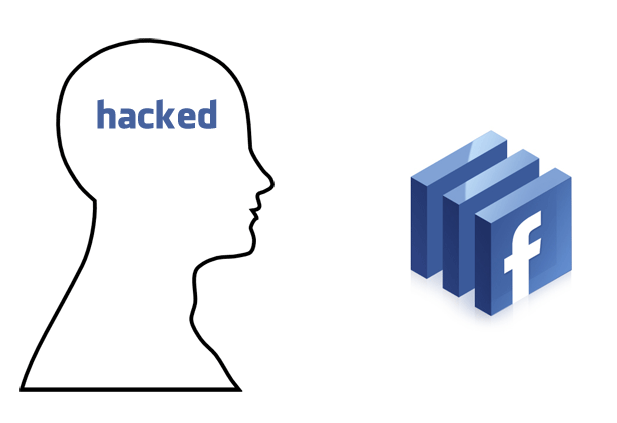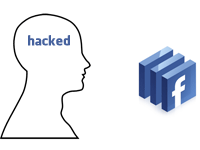 So all this time people have been (or at least seem to be) mad at revelations that governments, the US government in particular, analyse everything you do and say online. Turns out there’s worse stuff to be worried about. There’s outrage right now about Facebook conducting tests on its users without their knowledge. You’d at first (like I did) think that this is the usual stuff that all tech companies whose products are people do all the time. But there’s something different about this.
So all this time people have been (or at least seem to be) mad at revelations that governments, the US government in particular, analyse everything you do and say online. Turns out there’s worse stuff to be worried about. There’s outrage right now about Facebook conducting tests on its users without their knowledge. You’d at first (like I did) think that this is the usual stuff that all tech companies whose products are people do all the time. But there’s something different about this.
First, the basic facts:
- Some researchers at Facebook were on a mission to finds out if emotional states of people can be transferred online. Put simply, they wanted to test if your interaction on Facebook with people that are sad (or happy) can make you sad (or happy) as well.
- To conduct the experiment, the selected some 600,000 Facebook users and, without telling them, started showing them either less of happy posts by their friends, or less of sad posts.
- How they are able to do this is they can analyse each post to see what general mood it has. Plus, remember that Facebook has a mood status that a person can use to convey what mood they are in as part of a post.
- The result was that those that saw less of happy posts (that is more sad posts) became themselves sad. And vice versa – those that got more happy posts, became happy. After seeing the posts tweaked to test them, the people started posting updates that had similar emotions.
- This demonstrated that emotions can be transferred between people online.
Full details of the research can be found here.
The problem is this: Facebook essentially made 600,000 experimental guinea pigs without their permission, or without giving them an option to opt out at any point? If this was the usual A/B testing where users see different layout and different content just so Facebook can optimise the platform use (which most internet companies, including Google, do) then maybe it would be understandable. It’d just be the usual creepy stuff that internet companies do with our data.
But this is more than that. It’s an actual experiment testing something that doesn’t necessarily relate to your everyday use of Facebook as a product. The human is the subject of the research, and this involves altering their state of emotions. A state they may carry even outside the time they are on Facebook. One of these people could be you.
Do you think Facebook was right to do this without seeking the permission of the people they experiment on?

11 comments
I am not surprised, and am equally disappointed.
Am also disappointed in you Techzim that Facebook causes you more outrage as opposed to the year old global tech news on the Snowden leaks? Which you have not covered in a Zim/African context.
We understand your outrage with us, and we thank you for the ever candid feedback. We’ll work on this.
it was to be expected… its the trend and it probably will be more in the future this unsolicited snooping lol
There is no story there. Whats wrong with trying to figure that out on a sample of people
Normal people are outraged buy FB deciding to make their customers sad as an experiment. What if someone is already sad and mentally unstable and good old FB makes him to commit suicide. U my friend are a typical zimbabwean. Only cares for yourself. Bet you are zimbabwean politician from the famous party
I don’t get why you should allow a website to make you sad. Its just a website, period!!
Why should I care about Mark Zuckerberg’s experiment after-all my information is never really private on Facebook even if I delete/ditch my account Facebook does not erase user-deleted content.
The article is relevant to facebook consumers and there is a need for people to know if such tests are to being carried out. We all know that social giants like Facebook and Google have been using such data for as long as we can remember but invoking a bad emotion affects the user.
How many of your friends and relatives are on facebook Kivovo? How many of them have some influence on your life, and please do not say none as that would be a lie, for no man is an island. With that in mind, if the people you respect and look up to are influenced by someone else, who then really influences you? Bear in mind that this might stretch beyond just facebook. Consider whatsapp, a company under facebook. What other experiments are they able to do to influence our way of living? Let us look at the broader picture and take everything with a pinch of salt. Have you ever wondered why China barred western online services like facebook and google? Ponder on that for while.
This is an interesting and illuminating article. Thanks to TechZim for the piece. First and foremost, people as part of experiments should be told and should consent to the experiment. The experiment is not the issue, it is the mindset that fuels the notion that needs examination. On a more hypothetical scale, imagine a company that manufactures gases decides to test a chemical compound that makes people happy or sad. Just because it is a gas, approval is sought from relevant players yet the principal is the same. Thus, for whatever experiment on humans, no company should be allowed to do so without the consent of the participating parties. This is also just one of the experiments we have heard of, who knows how many other experiments have been carried out and we have no knowledge of. Peoples’ lives and ways of thinking are influenced by what we see, hear and do. In this day and age, online interaction has become an integral part of our society. How many times have we made decisions based on articles and information found online? Now suppose those decisions are influenced, without your knowledge, to satisfy the needs and goals of some corporate entity. Such a notion does not bode well with every individual connected to the internet, because at the end of the day, we will live our lives of of someone else’s design.
There is more in this subject than moods. There are tools that are being developed by the likes of IBM to analyse social media data. Enabling organizations to better understand their customer needs and help organizations develop products and services that have the consumer’s feedback in their production through the analysis of such data. THATS THE CURRENT TREND RIGHT NOW
. . .